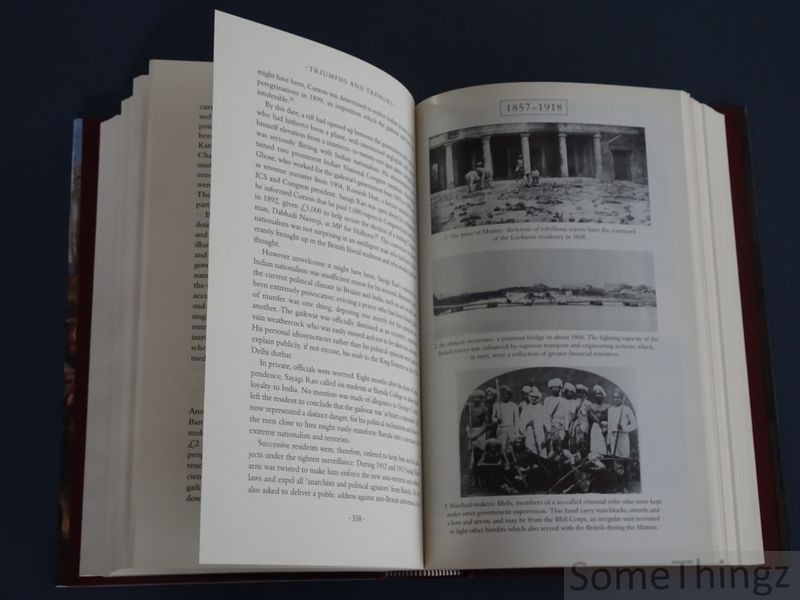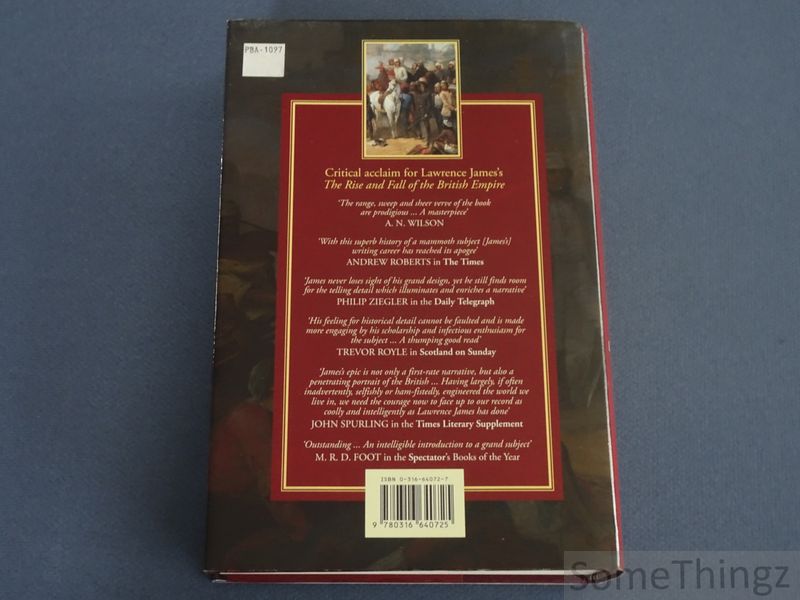BOOKS
James, Lawrence
Raj. The Making and Unmaking of British India.
London, Little Brown and Company, 1997.
€ 19.50
Bound, cloth with original dustjacket, 722pp., 16x24cm., ills. in b/w., in very good condition (as new). ISBN: 9780312193225.
This is the magnificently recounted story of one of the wonders of the modern world. In less than one hundred years, the British made themselves masters of India. They ruled it for another hundred, departing in 1947, leaving behind the independent states of India and Pakistan. Both nations owed much to Britain: British rule taught Indians to see themselves as Indians, and its benefits included railways, roads, canals, schools, universities, hospitals, law, and a universal language. There were also habits of mind and government that where derived from British custom.
None of this however, was planned. A series of emergencies in the eighteenth century transformed the East India Company into the most formidable war machine in Asia, and conquest gathered its own momentum. Fortunes were made, but the conscience of Britain was troubled by the despotism that was being created in its name. The result was a government that balanced firmness with benevolence, and had as its goal the advancement of India. There was resistance, both to the conquerors and, in the Indian mutiny, to the Raj they had made. This is a story of wars won against the odds and astonishing heroism, but it is also a tale of how, for many reasons millions of Indians collaborated with their new rulers and made possible the government of so many by so few. Raj contains much that is new, hidden, and controversial on areas as varied as the Mutiny, the Great Game, and the taxing of India.
The Raj, outwardly so monolithic and magnificent, was always precarious. Its masters knew that its survival ultimately depended on the goodwill of Indians, which was why pressure for self-government was met with a mixture of compromise and sternness. The twists and turns of the struggle for independence are told with a wealth of fresh material. Lawrence James galvanizes a subject already rich in incident and character: the India of the Raj was that of Clive, the Marquess Wellesley, Havelock, Kipling, Curzon, and Gandhi and a host of lesser known but vivid men and women. Raj probes their world and how they reacted to it. It will also provoke debate, using recently released official and private papers--to shed new light, flattering and unflattering, on Mountbatten and the other central and tragic events of 1946-47 that ended what had been simultaneously an exercise in benign autocracy and an experiment in altruism.





